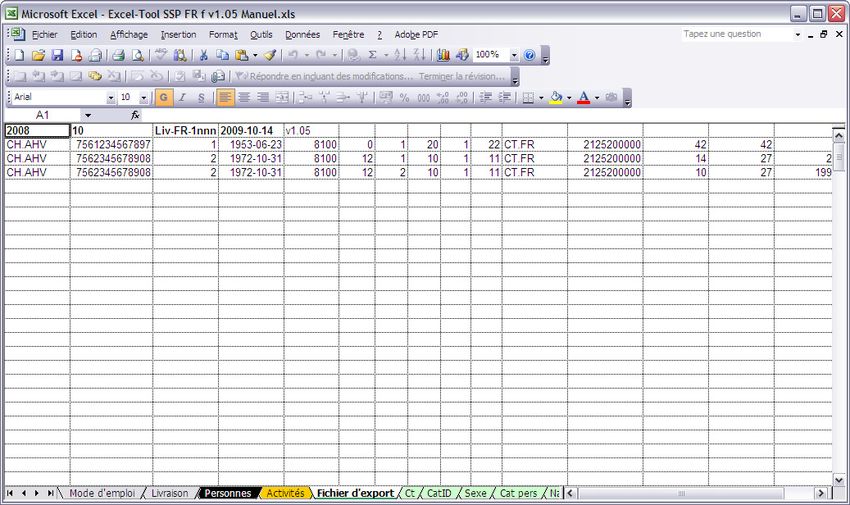
National data are collected and compiled by EU NCBsįor information about the naming convention (series key dimensions and metadata), refer to the SSP underlying DSD (ECB_SSI1) maintained by the ECB. Payment service providers (PSPs) as defined in Directive 2007/64/EC The data comprise the number of institutions and offices as well as the number of different types of accounts held by payment service users. Regulation ECB/2013/43: ECB/2013/44: ECB/2014/15: regulation (EC) No 2533/98 of 23 November 1998 concerning the collection of statistical information by the European Central Bank: legal framework: ĭetailed breakdowns related to institutions offering payment services.
FORMAT SSP EXCEL 2014 FULL
full list of series and associated metadata: Excel 2013 (zipped) or the earlier Excel versions. National Central Banks in the European Unionĭownload the series catalogue of the dataset SSP in CSV format, i.e. When you type a percent sign () after a number, the percentage number format will be be applied to that cell automatically. This is especially helpful when calculating things like the cost of sales tax or a tip. It displays values as percentages, such as 20 or 55. Also please visit my website - Structural Financial Indicators for Payments One of the most helpful number formats is the percentage () format.
FORMAT SSP EXCEL 2014 FREE
If you need assistance with your code, or you are looking for a VBA programmer to hire feel free to contact me.
FORMAT SSP EXCEL 2014 DOWNLOAD
You can download the complete workbook for this article from the link below: For more information about the sign please see the article below:

Note that adding the comma character is optional. You can add one comma character “,” between the different date elements. Similar to the previous cases the and terms could also be omitted: Year Formatting Below you can see the different formats for displaying the year and their result: Year Formatting yyyy is not the only format for displaying the year. Yyyy, determines the format and the location the year should be displayed. Below you can see the different formats for displaying the day and their result: Day FormattingĪgain the and terms could also be omitted: Day Formatting d is not the only format for displaying the day. The and terms could also be omitted: Month Formattingĭ, determines the format and the location the day should be displayed. Below you can see the different formats for displaying the month and their result: Month Formatting mmmm is not the only format for displaying the month. Mmmm, determines the format and the location the month should be displayed. Excel, Custom Formatting, Month Languageīy omitting this value I’m guessing the default language of the computer will be used.Mmmm d, have covered this topic in detail in the article below: If we chose the number 84 instead, the month would be displayed in german: For example the number 409 determines the language is in english. The first part determines the language to display the month in. Right click the cell and select format cells.In order to see what the custom formatting is: Standard formats are themselves a type of custom format. The date format used in cell A1 is a standard date format. Lets say we have written the following date value in cell A1:įor more information about creating date values in Excel please see: So what do these expressions mean? I will explain them using examples.


Below you can see some examples of custom date formats: In order to apply a custom format you must modify the highlighted text in the figure above. Custom formats can be applied to cells and ranges by selecting the custom format category as shown in the figure below: While the standard date formats are useful in most cases, but in some cases you might need a custom date format.


 0 kommentar(er)
0 kommentar(er)
